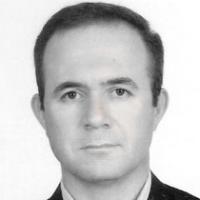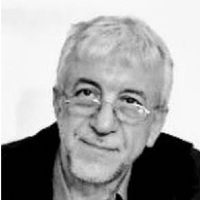Analysis and Explanation of the Realm and Various Approaches in Oral History
Oral history is in its quantitative heyday in Iran. However, this heyday is not parallel with theoretical and methodological discussions. This trend can undermine the creditability and status of oral history in the future. Ignoring the theoretical and methodological discussion and overgrown production of works under the title of ‘oral history’ in Iran will endanger this field in general. The questions of realm and approaches of oral history are among the neglected or at least not fully noted matters among oral historians. In the present study, it is assumed the readers know the identification of oral history and its differences with memories and oral tradition, and they are not mentioned to avoid repetition. The author has presented two subjects that can have effective approaches for the researchers and empower them by good knowledge in the field of oral history. In the present study, two questions are answered: How extended is the realm of oral history? And which people and subjects can be included in it? Then, three notable theoretical approaches are discussed. Oral history like many other fields of humanities is an interdisciplinary one. So, considering any discipline it will have different approaches. In this study, notable and compatible approaches with oral history are assessed.
Oral history, as a new phenomenon in historiography, has gone through a tortuous path for more than seven decades to reach its current state. In its ups and downs, it has passed through certain states and has treaded in numerous arenas. A history researcher needs to discern how far oral history has extended in terms of time, space, and topic. When it comes to speech and the quality of being oral, whether we like it or not, certain disciplines such as linguistics, anthropology, and psychology are also involved. In the face of different disciplines, oral history adapts to past and present theories in various situations. Awareness of the theoretical context and basic knowledge of sciences at any time tells us that oral history can relate to many of these theories and even strengthen them. Of course, oral history is not able to relate to all theories, but it sometimes borrows dimensions from them. The impromptu nature of oral history has allowed it to be weighed by different theories. It is interesting that sometimes in several opposite and contradictory theories, oral history can be defined. The present study is an attempt to see how far the scope and realm of oral history extends, and how it is related to the three approaches of functionalism, structuralism, and critical realism. Of course, it must be kept in mind that oral history and its question system determine in which theoretical school, strategy, approach, and method should be followed and which position should be obtained.
In this descriptive study, the scope of oral history and three approaches of functionalism, structuralism, and critical realism in the face of oral history have been studied.
The result of the present study indicates that the scope and realm of oral history are divided into three dimensions: 1) Temporal (encompassing two generations or 160 years), 2) Spatial (location of events), and 3) Topical (infinite number of topics, depending on the capacity of mind, memory, conditions of presence and action or witnessing events, happenings, and phenomena). In examining the functionalist approach and its relationship with oral history, it was determined that oral history, given its interdisciplinary nature, can have a reciprocal effect in the face of some other approaches in humanities. Functionalism is concerned with systemic and organic theory, but it has a positivist illusion and considers reasoning and mind as merely bodily functions of mankind. Oral history, therefore, is influenced by the mind and the dignity of human rationality is contrasted with functionalism. On the other hand, it considers functionalism of the society superior to man and considers man as a function of the society. The system of oral history, considering the inherent characteristics as well as the spiritual and psychological traits of human beings, does not reflect this superiority, and merely considers human beings and society as overlapping.Reflecting on the prevailing views of structuralism, it can be construed that society comprises various relationships, social ideas, and structures. In the field of history, structuralism sees phenomena as a coherent and interconnected whole, and because it reduces the fields of study of history, it kind of becomes a reductionist approach. Therefore, structuralism can be criticized in this regard. In oral history with a structuralist approach, human action, advantage, and consciousness are degrade and the networked relationships of structural elements are placed at the center of historical phenomena.In structuralist oral history research, attitudes, and explanations are based on the participants’ mental views, based on the narrator’s understanding of the relationships between phenomena. Research in such a situation is a bottom-up one. Narrators' narratives are the result of experience, interaction, and relationships between elements of society, and putting them together can even lead to a theory. By examining the critical realist approach, it can be considered that oral history is a window towards the real world, and can serve as a thread for the mental fabric. To reflect on the world and reality, perception is needed as a material that is only possible through oral history. Oral history seems to be fully analyzable from the perspective of critical realism.Given critical realism, oral history passes through the mind to discover the world and exploits language, thought, and perception en route. A multi-layered world is formed from complex and intertwined objective layers. Oral history enables critical reflection by counting data and retrieving sensory experiences from the world. Critical realism, then, brings oral history closer to gaining knowledge of the existence and deepening knowledge of the world and its surroundings.
- حق عضویت دریافتی صرف حمایت از نشریات عضو و نگهداری، تکمیل و توسعه مگیران میشود.
- پرداخت حق اشتراک و دانلود مقالات اجازه بازنشر آن در سایر رسانههای چاپی و دیجیتال را به کاربر نمیدهد.



